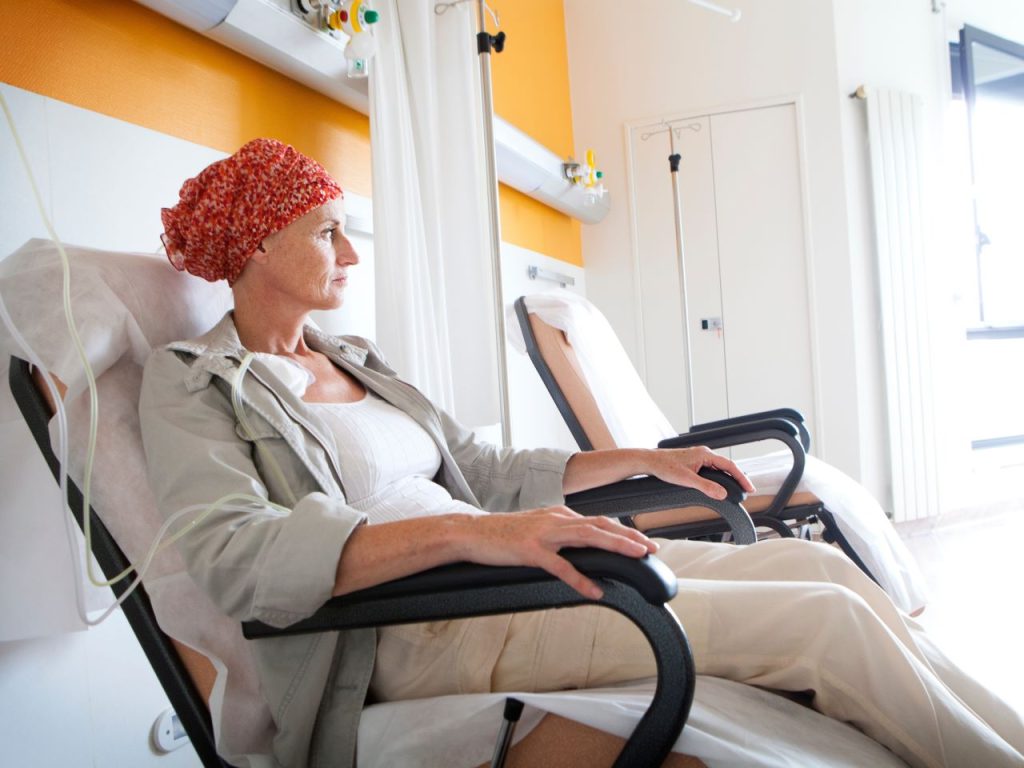Listen to the article
Cancer misinformation has become virtually unavoidable for newly diagnosed patients, with an alarming 93 percent exposed to at least one form of false information about treatments, according to a new study from UF Health Cancer Center.
The comprehensive research revealed that most patients encountered misinformation without actively seeking it, raising significant concerns about how patients make treatment decisions following a cancer diagnosis.
“Clinicians should assume when their patients are coming to them for a treatment discussion that they have been exposed to different types of information about cancer treatment, whether or not they went online and looked it up themselves,” said Dr. Carma Bylund, the study’s senior author and professor and associate chair of education in the UF Department of Health Outcomes and Biomedical Informatics. “One way or another, people are being exposed to a lot of misinformation.”
The researchers defined misinformation as unproven or disproven cancer treatments, as well as common myths and misconceptions about cancer care. This passive exposure to false information comes at a particularly vulnerable time for patients who are navigating life-changing medical decisions.
Cancer misinformation has proliferated across multiple channels in recent years, from social media platforms to well-meaning friends and family sharing unvetted remedies. This trend reflects a broader societal challenge of distinguishing credible health information from potentially harmful falsehoods.
Oncologists and patient advocates have long worried about the impact of misinformation on treatment adherence and outcomes. Some patients may delay evidence-based treatments in favor of unproven alternatives or become unnecessarily anxious about standard protocols due to unfounded fears circulated online.
The UF Health study is particularly significant as it quantifies the pervasiveness of the problem across a diverse patient population. While previous research has documented the existence of cancer misinformation, this study reveals just how difficult it is for patients to avoid exposure entirely.
Healthcare providers are increasingly concerned about the potential consequences. Patients exposed to misinformation may request inappropriate treatments, question evidence-based approaches, or experience heightened anxiety about their diagnosis and treatment options. In worst-case scenarios, this could lead to treatment delays or refusals that impact survival rates.
The American Society of Clinical Oncology and other professional organizations have emphasized the importance of patient education and clear communication between healthcare providers and patients. The UF Health study underscores the urgency of these efforts.
Medical centers nationwide are developing strategies to combat cancer misinformation, including providing patients with curated resource lists, developing patient education materials that address common myths, and training healthcare providers to discuss misinformation sensitively during consultations.
“This study highlights that misinformation isn’t just a problem for those actively seeking health information online,” explained a cancer communication expert not involved in the study. “It’s becoming part of the ambient environment for cancer patients, reaching them through casual conversations, social media, and traditional media channels.”
The findings suggest that healthcare providers should proactively address common misconceptions during treatment discussions rather than waiting for patients to raise concerns. This approach acknowledges the reality that virtually all patients have been exposed to some form of misinformation.
UF Health is piloting an “information prescription” program that gives patients tailored, evidence-based resources at diagnosis to help counteract misinformation they might encounter elsewhere.
The study also emphasizes the importance of media literacy in healthcare settings. Teaching patients how to evaluate the credibility of health information sources could help them navigate the complex and often contradictory information landscape after a cancer diagnosis.
As cancer treatments become increasingly complex and personalized, clear communication between healthcare providers and patients becomes even more crucial. The UF Health study serves as an important reminder that addressing misinformation must be a standard component of cancer care in the digital age.
Fact Checker
Verify the accuracy of this article using The Disinformation Commission analysis and real-time sources.




8 Comments
The prevalence of cancer misinformation is very concerning. Patients should be able to focus on their care, not sift through false claims. I hope the ‘information prescription’ pilot yields useful insights to better support vulnerable patients.
It’s alarming that 93% of cancer patients are exposed to misinformation. This highlights the urgent need for better patient education and fact-checking resources, especially for sensitive health topics. Clinicians must be vigilant about addressing misconceptions.
Absolutely, patients deserve accurate information to make informed treatment decisions. Proactive interventions by healthcare providers could make a big difference.
This is a concerning study. Patients facing a cancer diagnosis are in a vulnerable position and should be able to trust the information they receive. Healthcare providers need to be proactive in addressing misinformation and guiding patients to reliable sources.
I agree, an ‘information prescription’ seems like a good approach to counter the proliferation of false cancer treatment claims online.
This is a troubling trend. Easy access to unverified health information online can undermine patient trust and lead to poor decisions. Clinicians must take a more active role in directing patients to reliable, evidence-based resources.
Agreed. An ‘information prescription’ approach seems like a sensible way to steer patients toward trustworthy information during a difficult time.
Misinformation can be extremely harmful, especially for cancer patients who are already facing immense challenges. I’m glad to see UF researchers piloting an ‘information prescription’ program to combat this issue. More of this is needed.